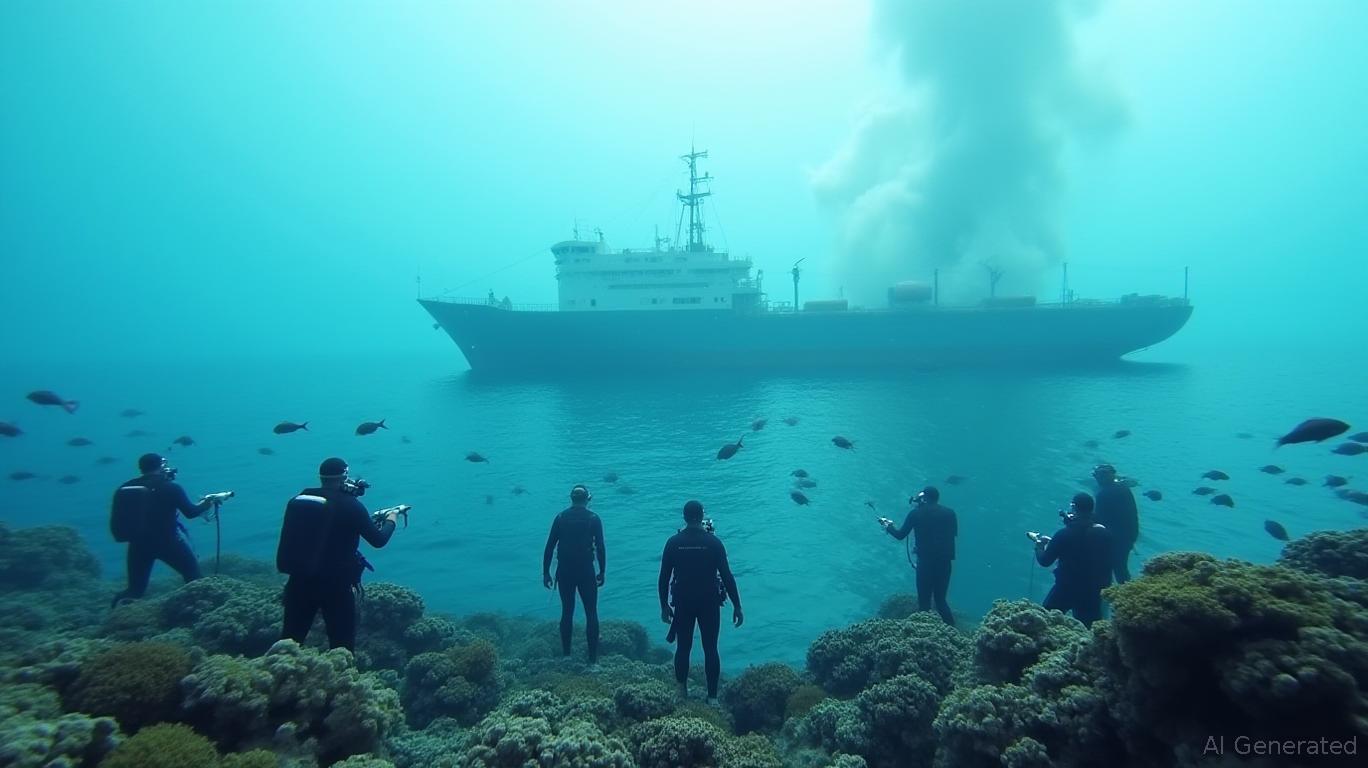Is Enhancing Ocean Alkalinity a Solution for the Planet That Won’t Harm Marine Ecosystems?
- Scientists propose boosting ocean alkalinity to enhance CO2 absorption, aiming to mitigate climate change by leveraging seawater's chemical properties. - Adding crushed limestone or alkaline materials could form stable carbonates, potentially removing significant atmospheric CO2 and expanding oceans' role as carbon sinks. - Experts debate scalability and ecological risks, cautioning that pH alterations might disrupt marine ecosystems, including coral reefs and shellfish populations. - The study emphasize
Researchers have introduced an innovative strategy to address climate change by boosting the ocean’s natural carbon dioxide absorption through increased alkalinity. As outlined in a recent
This method consists of modifying the ocean’s pH by adding materials such as ground limestone or other alkaline substances, which interact with dissolved carbon dioxide to create stable carbonate forms. In theory, this could extract large quantities of CO2 from the atmosphere and lock it away in the ocean for long durations. The Coin-Turk article notes that such measures might expand the oceans’ current capacity to absorb carbon, which now takes in about one-fourth of emissions produced by humans.

Supporters point to the scalability of this approach and its compatibility with natural oceanic processes, suggesting it could work alongside existing carbon capture solutions. On the other hand, opponents stress the importance of thorough environmental evaluations to understand the potential long-term effects on marine habitats. Adjusting alkalinity could upset sensitive chemical equilibriums, posing risks to coral reefs, shellfish, and other sea creatures that rely on stable pH conditions. The research highlights these unknowns and recommends more studies to improve the method and limit negative outcomes, as mentioned in the Coin-Turk article.
This breakthrough comes at a crucial moment, with global emissions still climbing despite worldwide climate initiatives. Although the ocean alkalinity approach is still experimental, it signals a move toward broader geoengineering tactics. Some specialists warn that such interventions should not distract from the immediate need to cut fossil fuel use, but they could offer additional support in the overall fight against climate change, according to the Coin-Turk article.
Disclaimer: The content of this article solely reflects the author's opinion and does not represent the platform in any capacity. This article is not intended to serve as a reference for making investment decisions.
You may also like
Dash Falls 17.83% Within a Day as Analysts Lower Targets and Major 2026 Expenditure Announced
- DoorDash (DASH) fell 17.83% in 24 hours amid analyst target cuts and 2026 spending plans. - Goldman Sachs and others reduced price targets, averaging $286.55 (41.83% upside). - Q3 revenue rose 27% to $3.4B, but near-term profits lagged due to costs; CEO Tony Xu plans AI/robot investments. - 2026 spending will increase by hundreds of millions to integrate Deliveroo into a global tech stack.
SOL Price Drops Sharply — BSOL ETF Debut Fails to Boost Momentum

Analyst Explains Why Bitcoin Top Still Expected and Why Altseason Has Not Yet Arrived

Kazakhstan to Launch $1 Billion National Cryptocurrency Reserve Fund by 2026 to Strengthen Digital Finance Sector
